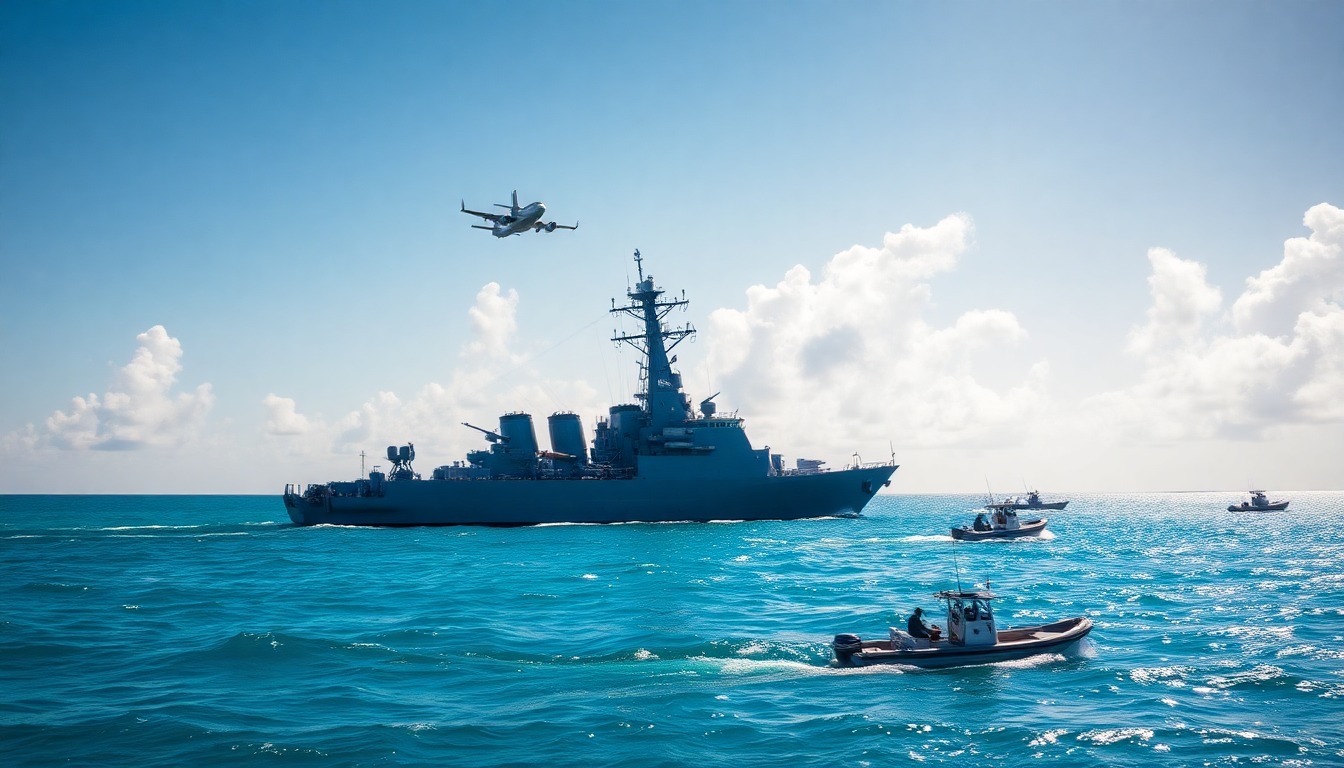Table of Contents
The recent military activities in the Caribbean, especially those initiated by the United States, have ignited serious discussions about geopolitical stability and international relations. With President Trump announcing a military strike against a vessel he claims was involved in drug smuggling from Venezuela, many are left wondering: what does this mean for regional security and international diplomacy? In this article, we’ll unpack the details surrounding this strike, examine the increased U.S. military presence in the Caribbean, and explore the Venezuelan government’s reactions, painting a clear picture of the ongoing tensions.
Understanding the Military Strike and U.S. Involvement
The U.S. military strike marks a significant escalation in its approach, particularly in the context of a heightened military presence in the Caribbean aimed at tackling drug trafficking. President Trump referred to the operation as a “kinetic” strike, targeting a boat he accused of transporting drugs for the Tren de Aragua gang. He took to social media to announce that the strike resulted in the deaths of 11 individuals he labeled as terrorists, while ensuring that no U.S. forces were harmed. This operation stands out in U.S. military strategy, especially regarding Venezuela and its alleged connections to drug trafficking.
As the U.S. bolsters its presence in the region—deploying seven warships and a nuclear submarine—concerns about the potential for conflict have surfaced. This operation not only signifies the U.S. commitment to combat drug smuggling but also highlights the complex dynamics shaping U.S.-Venezuela relations, which have been anything but smooth for years. Have you ever considered how a single military operation can ripple through international politics?
The Venezuelan Response and Implications for Regional Stability
In reaction to the U.S. strike, Venezuelan President Nicolas Maduro has ramped up military resources along the coastline, declaring his intention to establish a “republic in arms” if faced with aggression. This response aligns with Maduro’s long-standing narrative, which consistently portrays the U.S. as an interfering aggressor. His claims that the U.S. seeks regime change through military threats resonate with a broader sentiment within his administration, framing the U.S. as a destabilizing force in the region.
The implications of this military engagement reach far beyond immediate military concerns. Historically, the U.S. has justified military action by citing drug trafficking, positioning itself as the protector of its borders against what it calls “narcoterrorism.” However, these recent actions provoke questions about the effectiveness of such strategies and the potential for further escalation. Could this military strike signal a return to a more hardline approach reminiscent of previous administration policies towards Venezuela?
Looking Ahead: Long-Term Forecasts and Potential Developments
As we project into the future, the increased U.S. military presence and the recent strike set the stage for a complicated geopolitical landscape in the Caribbean. With rising tensions, both nations may find themselves stuck in a cycle of military posturing that could lead to unpredictable outcomes. The U.S. has even increased the reward for Maduro’s arrest, demonstrating a commitment to a maximum pressure campaign. But might this strategy provoke further defiance from the Venezuelan government, which aims to position itself as a stronghold against U.S. influence?
Additionally, we can’t overlook the broader implications for regional politics. The U.S. military’s deployment in the Caribbean may compel other regional players to reassess their positions and alliances. As Venezuela accuses the U.S. of pursuing regime change, neighboring countries will need to navigate their relationships with both the U.S. and Venezuela carefully to avoid being dragged into a larger conflict. How do you think these countries will balance their interests amidst such rising tensions?
In conclusion, the recent military actions in the Caribbean represent a turning point in U.S.-Venezuela relations. With the potential for increased conflict looming, both sides are deeply entrenched in their positions. As the situation evolves, keeping a close eye on these developments will be essential, as the outcomes are likely to have significant implications for the stability of the region. Are we witnessing the beginning of a new chapter in international relations?


